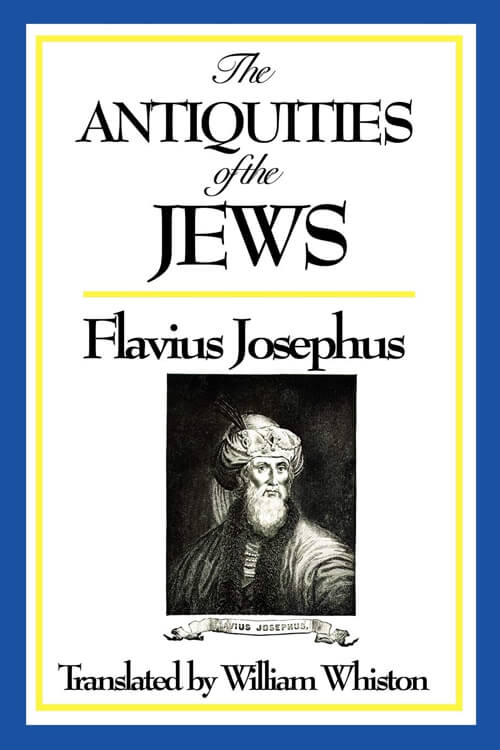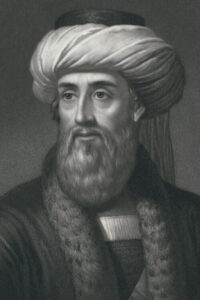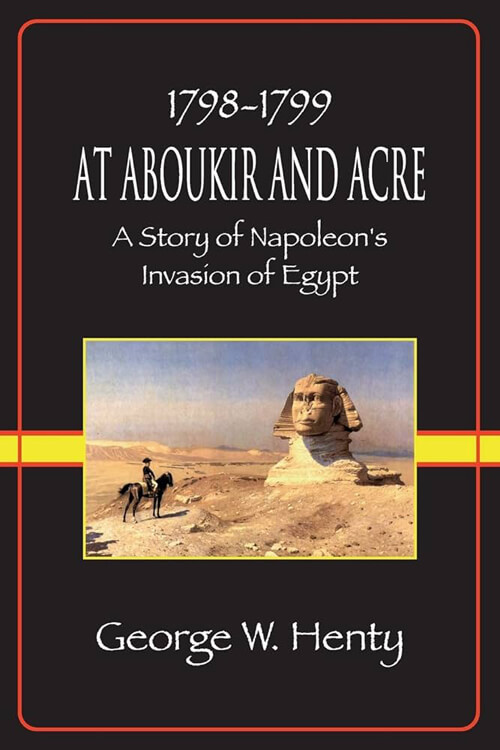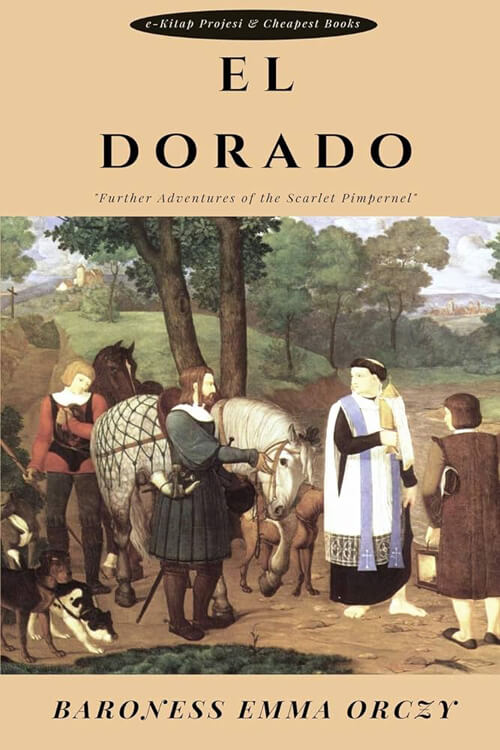
The Antiquities of the Jews
In the beginning, God created the heaven and the earth. But when the world did not come into sight, but was covered with thick darkness, and a wind moved upon its surface, God commanded that there should be light: and when that was made, he considered the whole mass, and separated the light and the darkness; and the name he gave to one was Night, and the other he called Day: and he named the beginning of light, and the time of rest, The Evening and The Morning, and this was indeed the first day. But Moses said it was one day; the cause of which I can give even now; but because I have promised to give such reasons for all things in a treatise by itself, I shall put off its exposition till that time. After this, on the second day, he placed heaven over the whole world and separated it from the other parts, and he determined it should stand by itself. He also placed a crystalline [firmament] around it and put it together in a manner agreeable to the earth, and fitted it for giving moisture and rain, and for affording the advantage of dews. On the third day, he appointed the dry land to appear, with the sea itself round about it; and on the very same day, he made the plants and the seeds spring out of the earth. On the fourth day, he adorned the heaven with the sun, the moon, and the other stars, and appointed them their motions and courses, so that the vicissitudes of the seasons might be signified. And on the fifth day he produced the living creatures, both those that swim, and those that fly; the former in the sea, the latter in the air: he also sorted them as to society and mixture, for procreation, and that their kinds might increase and multiply. On the sixth day, he created the four-footed beasts, and made them male and female: on the same day, he also formed man. Accordingly, Moses says, That in just six days the world, and all that is therein, was made. And that the seventh day was a rest, and a release from the labor of such operations; whence it is that we Celebrate a rest from our labors on that day, and call it the Sabbath, which word denotes rest in the Hebrew tongue.
2. Moreover, Moses, after the seventh day was over begins to talk philosophically; and concerning the formation of man, says thus: That God took dust from the ground, and formed man, and inserted in him a spirit and a soul.2 This man was called Adam, which in the Hebrew tongue signifies one that is red, because he was formed out of red earth, compounded together; for of that kind is virgin and true earth. God also presented the living creatures, when he had made them, according to their kinds, both male and female, to Adam, who gave them those names by which they are still called. But when he saw that Adam had no female companion, no society, for there was no such created, and that he wondered at the other animals which were male and female, he laid him asleep, took away one of his ribs, and out of it formed the woman; whereupon Adam knew her when she was brought to him, and acknowledged that she was made out of himself. Now a woman is called in the Hebrew tongue Issa; but the name of this woman was Eve, which signifies the mother of all living.
3. Moses says further, that God planted a paradise in the east, flourishing with all sorts of trees; and that among them was the tree of life, and another of knowledge, whereby was to be known what was good and evil; and that when he brought Adam and his wife into this garden, he commanded them to take care of the plants. Now the garden was watered by one river,3 which ran round about the whole earth and was parted into four parts. And Phison, which denotes a multitude, running into India, makes its exit into the sea, and is by the Greeks called Ganges. Euphrates also, as well as Tigris, goes down into the Red Sea.4 Now the name Euphrates, or Phrath, denotes either a dispersion, or a flower: by Tiris, or Diglath, is signified what is swift, with narrowness; and Geon runs through Egypt, and denotes what arises from the east, which the Greeks call the Nile.
Read or download Book
Flavius Josephus
Flavius Josephus (c. AD 37 – c. 100) was a Roman–Jewish historian and military leader. Best known for writing The Jewish War, he was born in Jerusalem—then part of the Roman province of Judea—to a father of priestly descent and a mother who claimed royal ancestry.
He initially fought against the Roman Empire during the First Jewish–Roman War as general of the Jewish forces in Galilee, until surrendering in AD 67 to the Roman army led by military commander Vespasian after the six-week siege of Yodfat. Josephus claimed the Jewish messianic prophecies that initiated the First Jewish–Roman War referred to Vespasian becoming Roman emperor. In response, Vespasian decided to keep Josephus as a slave and presumably interpreter. After Vespasian became emperor in AD 69, he granted Josephus his freedom, at which time Josephus assumed the Emperor’s family name of Flavius.
Flavius Josephus fully defected to the Roman side and was granted Roman citizenship. He became an advisor and friend of Vespasian’s son Titus, serving as his translator when Titus led the siege of Jerusalem in 70 AD. Since the siege proved ineffective at stopping the Jewish revolt, the city’s pillaging and the looting and destruction of Herod’s Temple (the Second Temple) soon followed.
Josephus recorded the Great Jewish Revolt (AD 66–70), including the siege of Masada. His most important works were The Jewish War (c. 75) and Antiquities of the Jews (c. 94). The Jewish War recounts the Jewish revolt against Roman occupation. Antiquities of the Jews recount the history of the world from a Jewish perspective for an ostensibly Greek and Roman audience. These works provide valuable insight into first-century Judaism and the background of Early Christianity. Josephus’s works are the chief source next to the Bible for the history and antiquity of ancient Israel, and provide a significant and independent extra-Biblical account of such figures as Pontius Pilate, Herod the Great, John the Baptist, James, brother of Jesus, and possibly Jesus of Nazareth.
Biography
Josephus was born into one of Jerusalem’s elite families. He was the second-born son of Matthias, a Jewish priest. His older full-blooded brother was also, like his father, called Matthias. Their mother was an aristocratic woman who was descended from the royal and formerly ruling Hasmonean dynasty. Josephus’s paternal grandparents were a man also named Josephus and his wife—an unnamed Hebrew noblewoman—distant relatives of each other. Josephus’s family was wealthy. He descended through his father from the priestly order of the Jehoiarib, which was the first of the 24 orders of priests in the Temple in Jerusalem. Josephus was a descendant of the High Priest of Israel Jonathan Apphus. He was raised in Jerusalem and educated alongside his brother.
In his mid-twenties, he traveled to negotiate with Emperor Nero for the release of some Jewish priests. Upon his return to Jerusalem, at the outbreak of the First Jewish–Roman War, Josephus was appointed the military governor of Galilee. His arrival in Galilee, however, was fraught with internal division: the inhabitants of Sepphoris and Tiberias opted to maintain peace with the Romans; the people of Sepphoris enlisted the help of the Roman army to protect their city, while the people of Tiberias appealed to King Agrippa’s forces to protect them from the insurgents.
Josephus also contended with John of Gischala who had also set his sight over the control of Galilee. Like Josephus, John had amassed a large band of supporters from Gischala (Gush Halab) and Gabara, including the support of the Sanhedrin in Jerusalem. Meanwhile, Josephus fortified several towns and villages in Lower Galilee, among which were Tiberias, Bersabe, Selamin, Japha, and Tarichaea, in anticipation of a Roman onslaught. In Upper Galilee, he fortified the towns of Jamnith, Seph, Mero, and Achabare, among other places. Josephus, with the Galileans under his command, managed to bring both Sepphoris and Tiberias into subjection, but was eventually forced to relinquish his hold on Sepphoris by the arrival of Roman forces under Placidus the tribune and later by Vespasian himself. Josephus first engaged the Roman army at a village called Garis, where he launched an attack against Sepphoris a second time, before being repulsed. At length, he resisted the Roman army in its siege of Yodfat (Jotapata) until it fell to the Roman army in the lunar month of Tammuz, in the thirteenth year of Nero’s reign.






